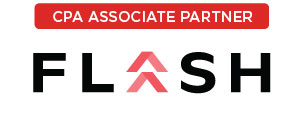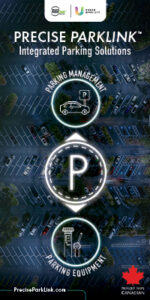Mobile Parking Services: Evolving from mobile payment to advanced mobile features
By Neša Matic and Dwight Deugo
The proliferation of mobile devices and our reliance on them for a multitude of our daily tasks and activities has had an impact on the way we use parking services.
Today, mobile parking services, which are relatively new in Canada, are bringing the benefits of improved convenience of mobile payment and mobility. However, they are also seen as the first steps towards the future of mobile parking, where social media, location-based services and machine-to-machine communications (M2M) play important roles.
While the market adoption of smartphones is shifting the mobile landscape towards high-end users with growing data plans, mobile parking systems aiming to capture wider audiences will continue to embrace the mobile “basics”: text messaging (SMS, short messaging service) and voice technologies (voice recognition). By taking this approach, they significantly expand their target market of prospects and customers, including non-data mobile users (pre-paid), and are able to cater to a wide variety of devices (iOS, Android, Windows).
In Ottawa, there are a few mobile parking payment systems already in operation. This article looks at one such system currently deployed at Carleton University and Algonquin College, through the eyes of two of its users and two of its vendor parking managers. The graphs below show the adoption rate of mobile parking payments at the Carleton University and Algonquin College.

Emilie is a Carleton University student. She normally uses public transportation, but twice a week she drives her father’s car to school. Emilie’s father registered his credit card and Emilie’s mobile phone details with Carleton University’s mobile parking payment system so she can use her mobile phone when parking in one of the university’s lots.
Always in a hurry, Emilie is often late for class. She parks her car in the P1 parking lot at Carleton University, and as she is running to class texts the message “car p1 3h” from her mobile phone to the short code1 “PARKED” (727533). She uses this message format to indicate that she wants to park for three hours. After receiving a confirmation text message, she knows her three-hour parking is confirmed and automatically paid for, by her father’s credit card!
Ten minutes before her parking time expires, Emilie gets a text-based notification from the parking service. Realizing that her class will probably run over time, Emilie extends her parking time for another hour by sending another text message, “car p1 1h”, from her mobile phone while she’s still in the classroom. She is promptly notified by a text message that the parking time extension was successful.
Jason is a part-time Algonquin College student. He has also registered with the mobile parking system, after providing his credit card and mobile phone information. By registering, Jason is ready to use his smartphone to access Algonquin College’s parking services.
Jason does not like texting. He prefers to use a mobile app to reserve and pay for his parking. Jason also prefers to use the app to receive notifications, including when being reminded that his parking time is about to expire.
While the interface is different for Jason and Emilie, the process is the same: identify the vendor, the lot, the time, make a request, and receive a confirmation. It is a matter of personal preference which interface is used to access the system on their mobile phone.
Now, let’s look at how the mobile parking evolution is affecting parking managers.
John is a parking enforcement officer at Carleton University. His job is easier since the days when real-time parking data required visual inspection on his mobile phone to validate parking. Now the mobile parking payment system John is managing is integrated with his existing parking infraction ticket management system. This integration results in the parking data checks being done in real-time when a possible parking infraction ticket is about to be issued. In addition, the latest parking data details for a given license plate can be reviewed.
Rene, a parking attendant at the Algonquin College, relies on the system to provide access to the active bookings online, and will soon be able to access this information on his existing mobile parking infraction ticket management system. Rene has another issue on his mind, which is common for many: how to handle visitor (guest) parking and temporary parking permits. Using the same mobile parking payment system, Rene can help his college avoid the overhead of administration, management and production of temporary parking passes by simply registering the visitor’s or guest’s license plate and the required parking date and time in the system. This information is immediately available to parking enforcement and there is no need for additional administrative overhead and printing.
What’s next?
It is not difficult to imagine that with the further evolution of mobile technologies in the parking industry segment, we will soon have the ability to be notified that a particular parking space, in our preferred parking list, is available. Also, when taking trips to metropolitan areas where parking may be expensive such as New York City, we will be able to make advance bookings and get decreased rates for multi-day parking. With advancements in Wi-Fi, parking lots will also be able to advertise their availability and mobile payment capabilities through the use of beaconing and micro-location based services. In addition, we will be able to tell if our friends are parked in a specific or preferred parking lot by relying on geo-fencing and social networks. Last but not least, with M2M communications coming to our cars and parking lots we will be able to automate and enhance our parking experience using intelligent, trigger-based applications that take into consideration a range of criteria and act upon them. Just imagine hearing the following from your car: “Dear Jason, your parking ticket is about to expire, you have 10 minutes left, and the temperature outside is -22 °C. Do you want me to remotely start your car?”
Fasten your seat belts, enjoy the mobile ride, and…mobile parking services!
- Short codes were introduced in Canada in 2003, and are regulated by the Canadian Wireless Telecom Association (CWTA).





